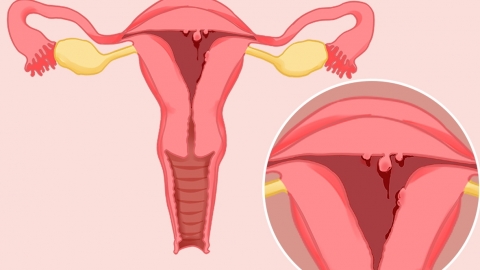What medication is suitable for treating an endometrial thickness of 10mm?
Generally, the term "endometrium" refers to the endometrium of the uterus. An endometrial thickness of 10mm may be related to factors such as the premenstrual phase, early pregnancy, endometrial hyperplasia, endometritis, or polycystic ovary syndrome (PCOS). It is recommended to seek timely medical advice to determine the underlying cause and, under the guidance of a qualified physician, use medications such as medroxyprogesterone acetate tablets, azithromycin dispersible tablets, metronidazole tablets, or progesterone capsules for treatment. A detailed explanation is as follows:

1. Premenstrual Phase
Prior to the onset of menstruation, the endometrium gradually thickens in preparation for the menstrual cycle. At this time, an endometrial thickness of 10mm falls within the normal range and generally does not require pharmacological treatment. It is advisable to maintain a balanced schedule of work and rest to support stable endocrine function.
2. Early Pregnancy
In early pregnancy, after implantation of the fertilized egg, the endometrium continues to thicken to support embryonic development. Therefore, endometrial thickening during early pregnancy is a natural physiological process and does not require medication. Women planning to conceive are advised to maintain a healthy lifestyle during the preconception period, including a balanced diet and moderate exercise, which can help promote healthy embryo implantation.
3. Endometrial Hyperplasia
Endometrial hyperplasia refers to the proliferation of endometrial glands and stroma, which may be associated with long-term estrogen stimulation, infertility, and other factors. The endometrium may undergo excessive growth due to estrogen stimulation, reaching a thickness of 10mm. This condition is often accompanied by symptoms such as menstrual irregularities and anemia. Treatment may include medications such as medroxyprogesterone acetate tablets, Danbie capsules, or Fuyan Kang capsules, as directed by a physician.
4. Endometritis
Endometritis is often caused by infection with pathogens such as Neisseria gonorrhoeae, Chlamydia trachomatis, or Escherichia coli. In an inflamed state, the endometrium is invaded by pathogens, leading to tissue congestion, edema, and inflammatory cell infiltration, which may cause the endometrium to thicken to 10mm. Patients may also experience symptoms such as lower abdominal pain and increased vaginal discharge. Treatment may include medications such as azithromycin dispersible tablets, tinidazole injection, or metronidazole tablets, as directed by a physician.
5. Polycystic Ovary Syndrome (PCOS)
Polycystic ovary syndrome may be associated with genetic and environmental factors. Patients often have endocrine disorders, including elevated androgen levels and imbalanced gonadotropin ratios, along with chronic anovulation. As a result, the endometrium is continuously exposed to unopposed estrogen stimulation, leading to endometrial hyperplasia with a thickness that may reach 10mm. Symptoms may also include hirsutism and obesity. Patients may be advised by their physicians to use medications such as dydrogesterone tablets, progesterone capsules, or medroxyprogesterone acetate tablets for treatment.
Maintaining good daily habits, regular作息 (作息 should be replaced with a suitable English term like "sleep patterns" or "routine"), avoiding熬夜 (熬夜 should be replaced with "staying up late") and excessive fatigue is important. Additionally, a balanced diet rich in fiber-containing foods such as vegetables, fruits, and whole grains can help maintain overall health.





